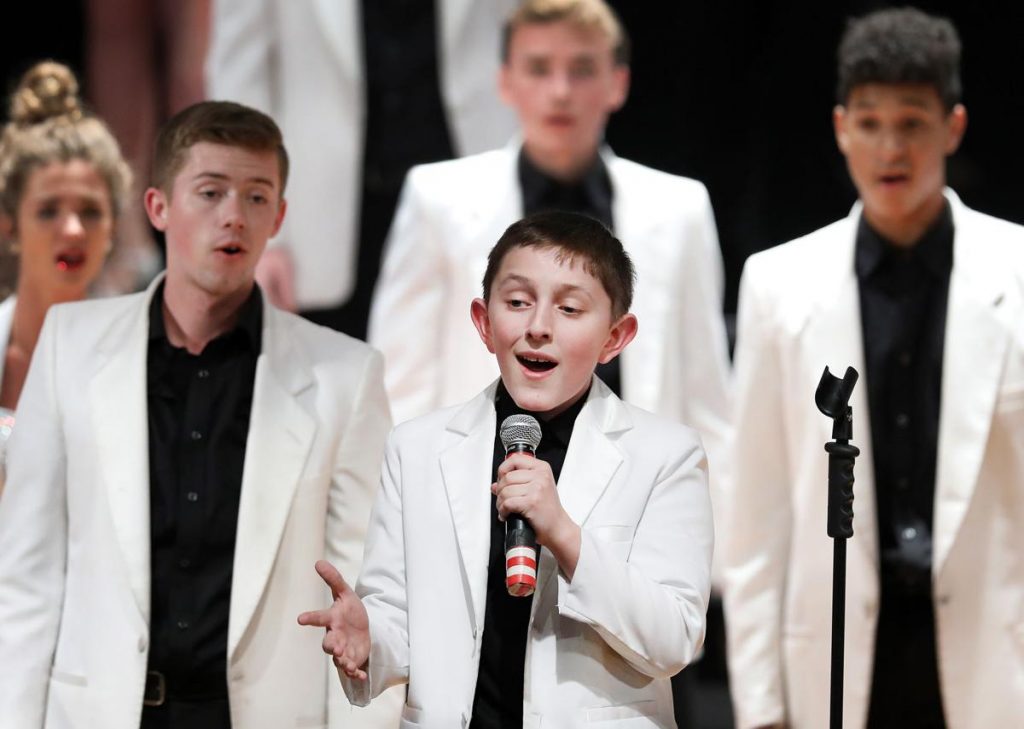Harmonium. Nathan says the name with such confidence. He stands, explaining the constitution of the new club. The suit he wears makes him stand out, being the only one so formal for a very informal meeting.
But, he’s smiling as he speaks with his hands, the passion for music radiating off his body. He talks about how the club would meet to hear compositions, and the discussion erupts to what counts as a composition and what are just “GarageBand beats.”
Nathan Kitrell is the founding president of the composition club Harmonium. His involvement with music doesn’t stop there. Nathan plays the saxophone and currently sings in the Morningside College Choir.
Whether he’s singing or playing, the music seems to pulse through him. It’s in his face in the expressions he makes and in his body in the way he sways to the beat. You would only have to watch him for a few second to know he is no stranger to performing.
However, if you had met Nathan only two years earlier, while his passion would be the same, he would look a little different.

On a show choir stage with his peers, Nathan is dwarfed by them. The suit he wears doesn’t fit his small frame quite right. His face is rounder than the other young men around him and his voice, as he begins his solo, is sweeter.
Nathan’s love for music started when he was small and stuck with him while he was still small. But why did Nathan remain a lost boy as his peers grew up? He wasn’t just a late bloomer. Nathan Kitrell was born without a pituitary gland.
Without the pituitary gland providing Nathan’s body with hormones, he was gifted with a very unique voice as he grew up. A voice that was surrounded and nurtured by his family around him.
He explained how he came from such a musical family. From his mother working with their church choir, his father being an avid music listener, and the musical accomplishments of his siblings, he’s always had music.
“Because of the fact that my voice has been a bit more unique,” Nathan said, “music has become more and more a part of my life.”
But the voice Nathan had was a piece of his identity he learned to let go. The end of his sophomore year of high school, he was going to start testosterone. However, his unchanged voice was flying high on a solo in show choir. His parents were concerned about how a voice change may affect his performance.
So, they waited a bit longer. Nathan explained: “There was the fear of the fact that if we don’t time it right, it may be detrimental to my vocal health.”
With the little control that they had, Nathan and his family tried their best to time his voice change right. But, there really was no good time. No matter what time it hit him, the drastic change would affect the voice he had grown to know as his. A voice that other people identified him with.
He struggled with how he had been identified by others. With his new and changing voice, Nathan could no longer deliver on what people expected him to sound like.
He was pushed to the edge of his new vocal range his junior year. The solo he had didn’t come out all the time. It was at a height his changing voice couldn’t fly to anymore. Yet, he wanted to hold on because that height made him notable in years passed.
It was a source of fear for him. Fear of change. The voice he was known for changed. Instead of growing each year, reaching a peak when he finally graduated high school, he got reset in the middle of it all.
“It was me trying and struggling to hold onto this voice that just wasn’t mine anymore,” Nathan finished.
- 2nd source ( Shelly Kitrell)
- Stuff about what he proud of
- Who inspired him
- 3rd person (Shirley Luebke????)
- How he got into teaching
- What he wants to do as a teacher
(We takin a break it’s 10:27pm and im tired)